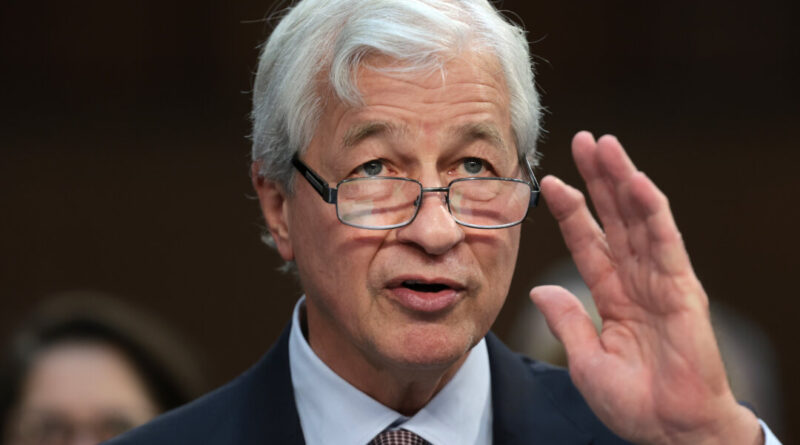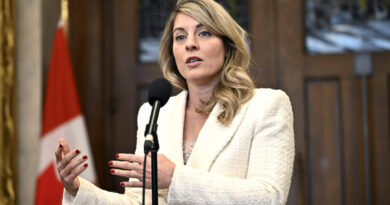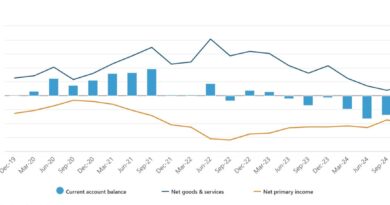Jamie Dimon Cautions That the Future Holds the Most Uncertain Times Yet, Potentially Surpassing World War II in Impact.
‘Beware of higher rates and recession,’ he said.
JPMorgan CEO Jamie Dimon issued a stark warning about the U.S. economy, emphasizing that the risks facing Americans today could be the most severe since World War II. He cautioned against downside risks that might shatter market expectations for an economic “soft landing.”
“We may be entering one of the most treacherous geopolitical eras since World War II,” Mr. Dimon wrote, highlighting the potential impacts of major economic and geopolitical forces, such as high debt levels, fiscal stimulus, conflicts in Ukraine and the Middle East, which could bring unpleasant surprises to the markets.
He expressed worries about ongoing deficit spending by the Biden administration, the unknown consequences of quantitative tightening, the possibility of prolonged high inflation, and the effects of deglobalization.
“The impacts of these geopolitical and economic forces are significant and somewhat unprecedented,” Mr. Dimon cautioned. “Their full extent may not be understood until several years have passed.”
Inflation, Recession Fears
Despite positive economic indicators that may suggest improvement, including inflation numbers, Mr. Dimon warned that this progress could be deceptive.
“There appear to be numerous persistent inflationary pressures that are likely to continue,” Mr. Dimon stated.
Inflation continues to be fueled by factors like ongoing fiscal stimulus, supply chain disruptions as global trade undergoes a major restructuring, remilitarization worldwide, and the financial needs of the emerging green economy, he explained.
Current deficits overshadow those of the past, and the unique aspect this time is that fiscal stimulus is occurring during an economic expansion phase rather than to lift the country out of a recession.
“I am more concerned about quantitative easing than most, and its reversal, which has never been attempted on this scale before,” he warned, cautioning about the uncertain consequences of the significant surge in money supply in recent years.
Although last year’s “mini banking crisis” is over, there is a risk that sustained higher interest rates may be necessary to mitigate persistent inflation. This could disrupt some optimistic market expectations that the ongoing period of elevated interest rates will sufficiently cool the economy to reduce inflation without triggering a recession.
“Markets are currently pricing in a 70 percent to 80 percent likelihood of a soft landing, modest growth, decreasing inflation, and declining interest rates,” Mr. Dimon noted. “I believe the chances are much lower than that.”
The JPMorgan chief highlighted that the instability from events last year, such as major conflicts, high inflation, financial uncertainties, escalating terrorist activities, and rising geopolitical tensions with China, have had significant repercussions and are likely to continue negatively impacting America.
Signaling a “possible reshaping of the global order,” as America’s global leadership is challenged externally by other nations and internally by a divided domestic electorate, Mr. Dimon advised investors to remain aware of downside risks.
“The ongoing conflicts in Ukraine and the Middle East continue to pose threats to energy and food markets, migration, military and economic relationships, as well as the tragic human costs,” he underlined. “These substantial and somewhat unprecedented forces necessitate caution from us.”
What to Do?
Mr. Dimon cautioned against relying solely on economic forecasts and stressed the importance of considering a range of potential outcomes and preparing accordingly.
A critical challenge lies in the numerous geopolitical and economic factors in play, with uncertainty surrounding how they may interact and in what timeframe.
“For instance, the geopolitical landscape could end up having minimal impact on the global economy, or it could potentially be the determining factor,” he remarked.
Businesses should prepare for a wide range of interest rates, spanning from 2 percent to as high as 8 percent or even beyond.
Investors should also have contingency plans for scenarios like a soft landing, as well as situations where high inflation persists alongside a recession, known as “stagflation.”
“Economically, the worst-case scenario would be stagflation, which not only entails higher interest rates but also increased credit losses, reduced business activities, and tougher market conditions,” he highlighted.
Mr. Dimon’s concerns about prolonged high inflation are echoed by some of his peers on Wall Street.





